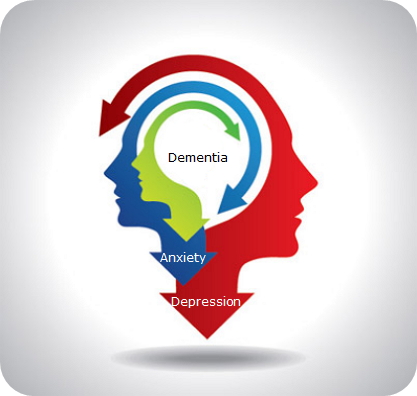Mental Health Awareness course for Medical Doctors



This introductory session aims to raise awareness of mental health issues with healthcare staff. It is designed to give a broad overview of what encompasses mental illness whilst highlighting the link between mental and physical health diagnoses. It also provides some simple guidance on how best to care for someone with mental health difficulties. More detailed profession-specific learning sessions will be contained in later modules within this series.
Learning Objectives
By the end of this session you will be able to:
- Explain how common mental illness is in the general population
- Describe the breadth (or range) of mental health diagnoses and presentations
- Explain the concept of parity of esteem
- Identify sources of support for an individual with a mental health diagnosis or learning disability
- Describe principles which healthcare workers can incorporate into their clinical practice to improve interactions with patients with mental health needs
This session uses self assessments that help you check what you have learnt. You do not have to use them and your answers are not seen by anyone else.
Dr Eady is currently a National Medical Director clinical fellow working at Health Education England. Dr Eady is an ST4 trainee in learning disability psychiatry working in North London. Dr Eady studied medicine at University College London Medical School. More recently she achieved a distinction in a Masters of Psychiatric research at University College London, during which time she conducted research into the treatment of dementia in individuals with learning disabilities.

- Anaesthesia Fundamentals | Physiology | Transfusio...
- Posted By eIntegrity Healthcare e-Learning
- Posted Date: 2024-11-13
- Location:Online
- This session covers the immunology of transfusion, focusing on the most clinically-significant red blood cell antigen systems, ABO and Rhesus. Affiliated antibody systems and compatibility between individuals with these blood groups will also be described
- Anaesthesia Fundamentals | Physiology | Red Blood ...
- Posted By eIntegrity Healthcare e-Learning
- Posted Date: 2024-11-13
- Location:Online
- This session covers the structure and function of the erythrocyte, focusing on the biochemistry and physiology of normal haemoglobin. It will also describe the pathophysiology of the haemoglobinopathies and thalassaemias.
- Anaesthesia Fundamentals | Physiology | Metabolic ...
- Posted By eIntegrity Healthcare e-Learning
- Posted Date: 2024-11-13
- Location:Online
- This session provides an overview of the basic metabolic pathways and metabolic reactions. It also explains how the body produces and stores energy obtained from the main fuel sources — carbohydrates, proteins and fats.
- Anaesthesia Fundamentals | Physiology | Physiology...
- Posted By eIntegrity Healthcare e-Learning
- Posted Date: 2024-11-13
- Location:Online
- This session describes the physiology of nausea and vomiting. Topics covered include swallowing reflex, barrier pressure, agonist/receptor systems, afferent and efferent pathways and causes and consequences of postoperative nausea and vomiting.
- Anaesthesia Fundamentals | Physiology | Gastric Fu...
- Posted By eIntegrity Healthcare e-Learning
- Posted Date: 2024-11-13
- Location:Online
- The stomach acts as a reservoir and converts the episodic input of food from the oesophagus to a more continuous output of chyme into the duodenum. It is important in the mechanical breakdown of food and the chemical digestion of proteins.








